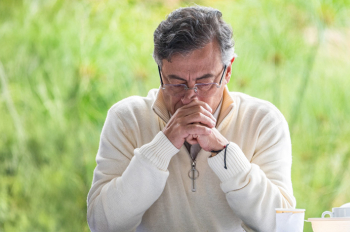
Marriage rates in New Zealand have reached historic lows, according to new government data, prompting the New Zealand Christian Network (NZCN) to affirm the value of strong marriages for families and society.
Figures released by Stats NZ on Aug. 29 show that only 18,033 marriages and civil unions were registered in 2024, down 4% from the year before and 14% lower than the 1990s, when an average of 20,950 marriages were celebrated each year. The marriage rate now stands at eight per 1,000 eligible people, compared with 18 per 1,000 in the 1990s and 39 per 1,000 in the 1960s.
“The marriage rate has fallen from one generation to the next, with a range of factors contributing to this, including changing views of marriage and economic factors,” said Rebekah Hennessey, a Stats NZ spokesperson. She noted that marriage is “no longer seen as the only or necessary path for a committed relationship,” with higher proportions of people in de facto relationships and about half of babies now born to unmarried parents.
The decline in marriages was mirrored by a drop in divorces. A total of 7,497 couples divorced in 2024, 6% fewer than the previous year and 21% below the average of the 1990s. Stats NZ reported 7.5 divorces per 1,000 marriages last year, compared with 12 per 1,000 three decades ago.
“With fewer people marrying, a decline in divorces is to be expected,” Hennessey said. “Additionally, changing views of marriage, and people being older on average when they do marry, may mean that those who do marry are making more intentional choices, potentially reducing the chance of divorce.”
The agency also highlighted a sharp drop in remarriages. About 4,560 remarriages were registered in 2024, down nearly 40% from the early 2000s. In contrast, the number of first marriages has remained relatively stable, hovering around 13,000 annually.
“Marriage and divorce rates are useful for comparing change over time rather than comparing rates directly, as the marriage rate is based on people who are not married while the divorce rate is based on couples that are married,” Hennessey said.
Marriage and divorce data can be more easily compared using the proportion of marriages ending in divorce. Couples need to have been separated for at least two years before they can apply for a divorce, with marriage duration including the time that a couple was separated.
“Around 1 in every 20 marriages ends in divorce within five years, while 1 in every 3 marriages ends in divorce by the 25th wedding anniversary,” Hennessey said. “Conversely, around 60 percent of couples remain married for the rest of their lives.”
According to Stats NZ, the decline in marriages since the 1990s is “mostly driven by fewer people remarrying than people marrying for the first time.” A quarter of marriages last year involved at least one person who had previously been married. This is less than a third of such marriages in the 1990s.
“Marriages can end through divorce or the death of a spouse, with the data indicating that fewer individuals in these situations are opting to remarry," Hennessey said. “Among those who remarry, about 90 percent were previously divorced, so a decline in divorces corresponds with a decline in remarriages.”
Remarriages have shown a sharper decline than first marriages over the past two decades. About 7,500 remarriages were recorded in the early 2000s, compared with 4,560 in 2024—a 39% drop. By contrast, the number of first marriages has remained steady, with 13,200 in the early 2000s and 13,467 last year.
In response to the report, NZCN issued a statement in its Sept. 4 newsletter acknowledging the decline but emphasizing that “good marriages matter.” The evangelical group urged Christians to model healthy relationships, calling strong marriages a blessing not only for couples but also for children and the wider community.
“Of all people, Christians should aim to ensure their marriages are as healthy as possible,” the NZCN staff said. “It is tragic when any marriage struggles or fails, but arguably even more so when it involves Christians.”
The network outlined qualities it sees as essential for sustaining marriages: unwavering commitment, faithfulness, and trustworthiness; prayer and shared faith at the center of the relationship; and an ongoing delight in one another expressed through words, actions, and time together. Couples should seek each other’s wellbeing, share burdens, listen attentively, and communicate gently.
NZCN also stressed the importance of mutual respect and encouragement, personal growth rather than blame, and the avoidance of destructive behaviors such as bickering, coercion, or angry outbursts. Finally, the group urged couples to practice forgiveness and extend grace, noting that healthy marriages depend on the ability to apologize, reconcile, and move forward together.






